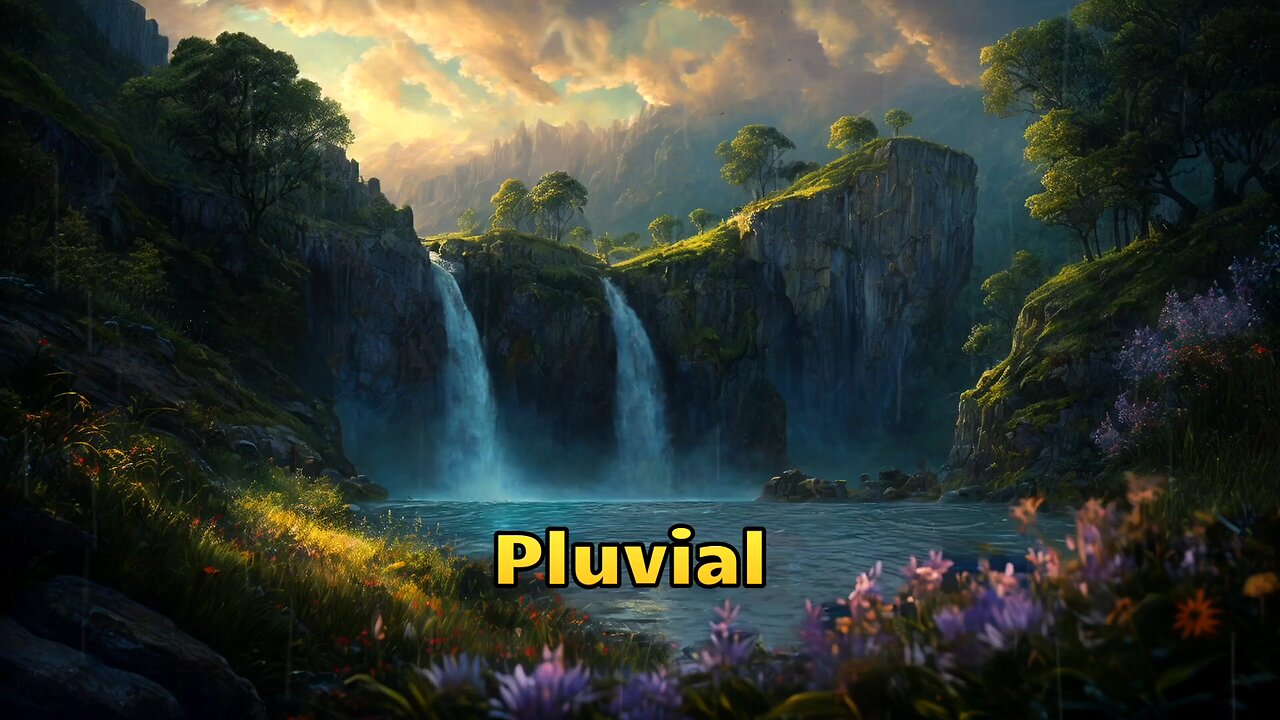Premium Only Content

When Earth Endured Two Million Years of Rain: The Carnian Pluvial Event
#CarnianPluvialEvent #TwoMillionYearsOfRain
#TriassicPeriod #AncientClimateChange
#GeologicalHistory #EarthsHistory #PrehistoricRain
#VolcanicEruptions #DinosaurEra #PangeaRain
Ah, the Carnian Pluvial Event—a time in Earth’s history that could make even Noah’s flood look like a minor plumbing issue. Imagine two million years of relentless rain. Yes, you read that right, two million years. If you ever complained about a week of drizzle, buckle up. This is the tale of an Earth that decided to take the longest shower ever recorded, making us all feel grateful that our worst weather gripes involve no more than an umbrella and some wet socks.
The Unrelenting Downpour Begins
So there you are, in the late Triassic period, just chilling out, enjoying the continental drift, when suddenly the skies open up. It starts with a drizzle, then a shower, and before you know it, you’re building an ark just to get to work. Welcome to the Carnian Pluvial Event, where the forecast is 100% rain, 24/7, for the next two million years. It’s like the Earth's version of binge-watching a never-ending soap opera—except the characters are all water droplets.
The Great Global Soak
While modern humans moan about a rainy weekend ruining their barbecue, the Triassic inhabitants had bigger problems. The rain transformed the landscape, flooding vast areas and turning deserts into lush, albeit soggy, wetlands. This massive global soak didn’t just affect the scenery; it had a profound impact on the flora and fauna. Think of it as Earth’s way of forcing everyone to adapt or die—and we’re not just talking about soggy tail feathers here.
Imagine a T-Rex trying to navigate through a swamp, slipping and sliding like it’s on a prehistoric slip-and-slide. Or perhaps a Diplodocus, typically munching on foliage, now trying to figure out why everything tastes like mildew. It was a Jurassic water park, and no one had signed up for it.
The Extinction Event: Drowning in Change
But wait, there’s more! This wasn’t just a time for fun and wet games. The Carnian Pluvial Event caused significant extinctions. The intense, prolonged rainfall led to a decline in plant species that couldn't cope with the persistent wet conditions. Some creatures found themselves evolving webbed feet or transforming into semi-aquatic beings just to cope. Others? Well, they took the express route to extinction—Darwinism with a side of waterboarding.
This was nature's ultimate reality check. “Adapt or drown” was the motto, and many species were promptly shown the door. Earth had decided it was time for a reboot, clearing the way for new species to emerge. Out with the old, in with the amphibious, as they say.
The Aftermath: A Wet Wonderland
So what happens when the rain finally stops? Well, after two million years, you'd expect a bit of sunshine, right? The post-rain world was a transformed landscape. It was a golden era for lush vegetation and the dinosaurs who managed to swim through the storm. The planet, rejuvenated by its massive waterlogged cleanse, flourished.
In a way, the Carnian Pluvial Event was Earth’s ultimate spring cleaning. Out went the old ecosystems, making room for new, vibrant life. The survivors of this drenched ordeal were tougher, more resilient, and probably very pruney. They were the ancestors of the creatures that would one day roam the Earth in even more diverse and complex forms.
A Cosmic Joke on Weather Complaints
In the grand scheme of things, the Carnian Pluvial Event stands as a humbling reminder of nature's sheer power. Next time you’re tempted to complain about a rainy day, remember this: it could be worse. Much worse. Like, two million years of incessant rain worse.
So here’s to the brave creatures of the Triassic, who survived Earth’s longest wet season. And to the rest of us, who can at least take solace in the fact that our rainiest days are but a drop in the prehistoric bucket. Cheers to weathering the storm and to appreciating the relatively dry days we have now. ☔️🌧️
-
 LIVE
LIVE
The Bubba Army
2 days agoShould RaJa Jackson Be Arrested? - Bubba the Love Sponge® Show | 8/25/25
2,609 watching -
 LIVE
LIVE
FyrBorne
14 hours ago🔴Warzone M&K Sniping: Builds So Strong They Think I'm Hacking
363 watching -
 LIVE
LIVE
BEK TV
2 days agoTrent Loos in the Morning - 8/25/2025
1,145 watching -
 4:23
4:23
Blackstone Griddles
16 hours agoEasy Salmon Dinner on the Blackstone Griddle
27.3K1 -
 8:10
8:10
WhaddoYouMeme
1 day ago $0.06 earnedChristians, Before You See “Testament”, Watch this!
7.36K4 -
 8:42
8:42
Freedom Frontline
15 hours agoDurbin’s Trump Smear Video Just HUMILIATED Him in the Senate
9.21K5 -
 10:56
10:56
ariellescarcella
13 hours agoThe Shocking Divide Among College Voters Sparks Worry For America
7.57K6 -
 13:09
13:09
Forrest Galante
11 hours agoWildlife Expert Reacts To Deadly Australian Animal TikToks
53.5K9 -
 12:08
12:08
Zoufry
2 days agoThe Mystery of Gaddafi's Final 24 Hours
14.7K12 -
 18:25
18:25
Liberty Hangout
13 days agoAnti-Ice Demonstrators Love Poop!
52.4K71